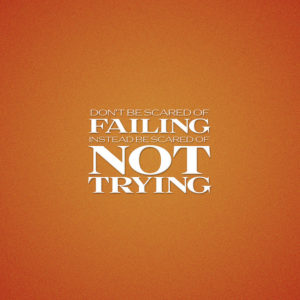If you want to be a more effective communicator, you’ll remember from last week’s post that no matter what your subject, you must incorporate your “passion.”
But how do you find your passion?
What subject will inspire? When you’re not assigned a topic, what do you talk about? When you are assigned a speaking topic, what “passion,” if shared, will make a difference?
You might want to read last week’s post: “Ignore Your Assignments” before reading this post.
What is “Passion?”
In public speaking, “passion” is not necessarily your love, or your hobbies, so much as it is your core beliefs and values. What is that personal “so what” factor for you?
Great presentation skills require that you tap into that inner passion.
If you have parents, you can probably tell me what stories they tell over and over. If you have kids, they can probably tell you what advice you tend to give over and over. It’s easy to see in others the values they hold dear. But it’s much harder to know this about yourself.
If you want to sound authentic, authoritative, and interesting, you must include those core elements of yourself, but first you have to know what they are.
Maybe you’re motivated by family. Maybe you’re motivated to altruism. Maybe you’re a perfectionist, or maybe you’re a persistent devil’s advocate.
What is your core “passion?”
Start with Memories
 It’s a pretty safe bet to say that you remember things that you care about. If you remember something, then something about that experience was important to you. So let’s start with memories.
It’s a pretty safe bet to say that you remember things that you care about. If you remember something, then something about that experience was important to you. So let’s start with memories.
Make a list of memories. Your list will include include childhood memories, lessons learned, mistakes, triumphs, and dreams. Generally speaking, this exercise will work better if you return to childhood or young adult memories rather than more recent events.
You might find that it’s easy to list a hundred different powerful memories. On the other hand, if you’re like me, your list (your memory) might be lacking.
If you’re struggling to find powerful memories, stop. They don’t have to be “powerful!” You’re not looking for exceptional, out of the ordinary experiences. No matter how seemingly mundane, the very fact that you remember something from so long ago proves that is had a “powerful” effect on you–even if the memory itself doesn’t seem so noteworthy.
I recommend a technique I read about many years ago in a book called “Did I ever tell you about the time…” by Grady Jim Robinson.
Simply make a physical or mental map of your childhood home, and in your mind walk in the front door and tour the house. As you walk around this virtual map, make a note of significant memories from different locations in that home. You can do the same exercise with outdoor locations, recreational destinations, or workplaces.
If you need more ideas, go through a list of important people in your life, and see what memories come to mind for each.
By the time you are done, you should have many dozens of memories on the list.
Pick the top 10-20 memories that feel important to you even if they are mundane or may not appear significant to someone else.
For example, my list looks like this:
- Vacation with Mom
- First public speaking anxiety attack
- Eating cow brains
- Business failure in high school
- Helping my dad with the computer
My real list is much longer, I just want to give you an example of the general idea.
Find Meaning
 Once you have a list of 10-20 memories, go through the list one by one and write a sentence to explain why you think you’ve retained the memory, or what you learned from the experience.
Once you have a list of 10-20 memories, go through the list one by one and write a sentence to explain why you think you’ve retained the memory, or what you learned from the experience.
You remember these experiences for a reason. Write down that reason. My list looks something like this:
- My trip Mom taught me to take advantage of opportunity
- My public speaking anxiety attack taught me not to give up
- My eating weird food made me feel proud to have accomplished something
- My business in high school helped me appreciate failure
- I remember Helping Dad with the computer because it frustrated me when he didn’t figure it out himself.
Find Common Themes
As you start writing these “WHY” sentences you will start to see some common themes. When I did this exercise myself I ended up with about 4 or 5 common themes that applied to almost every single one of my memories.
For example, as I thought about the above list, every one of those five sentences on my list can be summarized in one word: TRY!

Those experiences taught me to TRY. It frustrated me in life when others did not TRY, and I learned valuable life lessons when I did TRY, and I regret those times when I did not TRY.
This is one of my core life values: TRY!
There is no right or wrong answer. There is no set number of themes that you could or should find. Your values don’t have to match mine. Just write down the core values you find in your memories.
Like in my example, “try,” your core values may be easier to phrase in terms of a lesson learned or advice you would give to someone else.
Speak Your Passion
Next time you have to give a presentation, or next time you are asked to do public speaking, take one of those core values and relate it to your subject. It’s a lot easier than it may sound.
- When I’m teaching a public speaking class, I might be tempted to talk about “public speaking.”
- When I take my kids out to diner I might be tempted to talk about how much I love the crab salad.
- When I’m writing a eulogy, I might be tempted to talk about the dead guy.
- When I’m running a team meeting at work, I might be tempted to talk about the to-do list at work.
All of those approaches would be less effective because they focus on a SUBJECT isolated from feeling. The more effective approach is to always begin with my PASSION FIRST.
Never talk about an assigned subject. Talk about how your passion relates to the assigned subject.
Here’s a better way:
- When I’m teaching a public speaking class, I should talk about how my public speaking skills changed when I was willing to TRY new techniques. Then, encourage my audience to TRY as well.
- When I take my kids out to dinner I should talk about how I love to TRY new food, and how I would be proud of them for trying the crab salad.
- When I’m writing a eulogy, I should remember that time that the deceased gave me a good example of TRYING — because that affected me.
- When I’m running a team meeting at work, I should talk about how we’ll never succeed with our to-do list unless we TRY.
What’s your subject?
What should you talk about?
What do you say?
In case you didn’t catch on yet, besides “trying,” one of my core values is the need to share your core values. Authentic, powerful communication requires you to share your true passions. This blog post wasn’t about public speaking, it was about one of my core values–“share the real you.”
That single epiphany, “share the real you,” began my personal transformation from anxiety ridden awkwardness into presentation skills mastery.
Remember your feelings. Identify your core values. Share your passion. The rest will be easy.
"Core Memories" images from Disney's "Inside Out"












